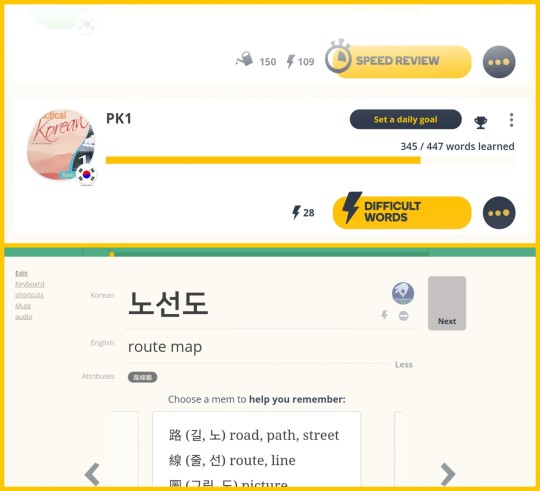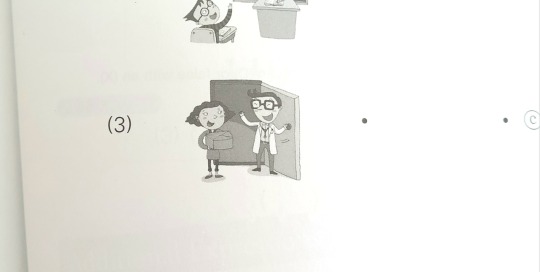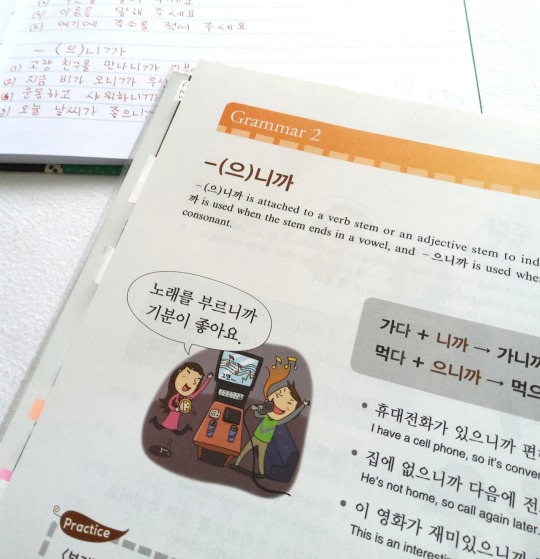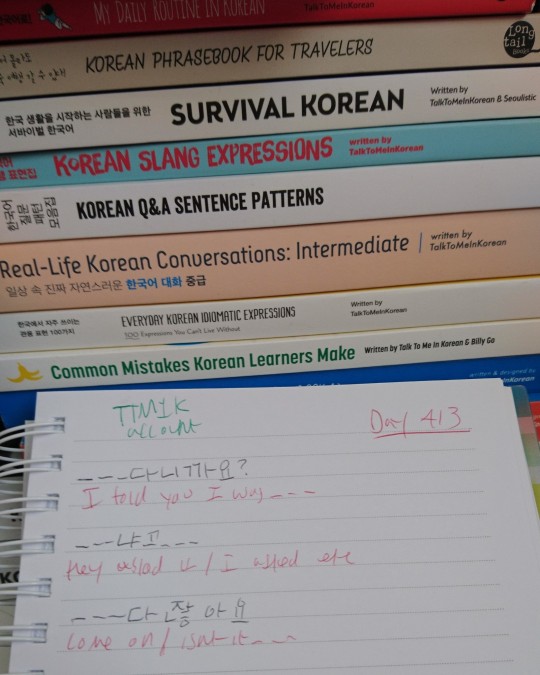Note
How do koreans talk about celeberties or people in the public eye? I was talking to my friend about a shared favourite singer and she is older than him so she used no honorifics but im younger and didnt use any, did i mess up? it feels weird to me to say 민호오빠 if i have no relationship to him.. honorifics like 오빠 feels too personal to give to a celeb, should i use 씨 or is there a better fit one potentially? it feels more compounded because 민호 is both his stage name and real name..
I have no idea? :)
I am just a beginner in Korean and being unable to watch videos or listen to music has made me quite detached from Korean entertainment industry.
That being said, I assume a person talks about celebrities the same way they talk about any other person they don't know. Amount of fame seems to be one of the rare things that doesn't need to be considered when choosing a speech style in Korean.
I think some girls who are younger than their favorite male celebrity enjoy calling them 오빠 because it makes them feel closer to him and a part of the fandom. I never saw anyone complain about it, but as I said, what do I know.
31 notes
·
View notes
Note
How do koreans talk about celeberties or people in the public eye? I was talking to my friend about a shared favourite singer and she is older than him so she used no honorifics but im younger and didnt use any, did i mess up? it feels weird to me to say 민호오빠 if i have no relationship to him.. honorifics like 오빠 feels too personal to give to a celeb, should i use 씨 or is there a better fit one potentially? it feels more compounded because 민호 is both his stage name and real name..
I have no idea? :)
I am just a beginner in Korean and being unable to watch videos or listen to music has made me quite detached from Korean entertainment industry.
That being said, I assume a person talks about celebrities the same way they talk about any other person they don't know. Amount of fame seems to be one of the rare things that doesn't need to be considered when choosing a speech style in Korean.
I think some girls who are younger than their favorite male celebrity enjoy calling them 오빠 because it makes them feel closer to him and a part of the fandom. I never saw anyone complain about it, but as I said, what do I know.
31 notes
·
View notes
Text

Working on Practical Korean 1 vocabulary in Memrise.
This is the first time I added vocabulary twice - once Korean -> English, once English -> Korean, so there's actually about half as much content as the course shows.
30 notes
·
View notes
Text
youtube
Lockdown for a Lifetime
2 notes
·
View notes
Text
0 notes
Text
Useful expressions for Korean diary
I am trying to start a daily Korean diary but since I’m just a beginner I had no idea what and how to write. After a bit of research these are some expressions I collected:
🎉
오늘은 특별한 날이다.
Today is a special day.
📰
오늘은 평범한 날이다.
Today is an ordinary day.
⏰
아침 여섯시 반에 일어났다.
I got up at half past six in the morning.
🚿
세수를 했다.
I washed my face.
💧
그리고 비가 내린다.
And it was raining.
☁
흐렸다.
It was cloudy.
🌞
맑았다.
It was clear.
❄
눈이 왔다.
It snowed.
☔
비가 왔다.
It rained./It was rainy.
🍜
오후 두시 오십칠분 점심식사를 먹었다.
I had lunch at 2:57 p.m.
🍨
그 음식은 맛있었다.
That food was delicious.
📖
나는 한국어를 공부했다.
I studied Korean.
🏢
학교에 다녔다.
I went to school.
🎢
놀이공원에 갔다.
I went to amusement park.
⛺
그 후에 피곤해서 집에서 잠을 잤다.
After that, I slept at home because I was tired.
Please tell me if you spot any mistakes or if you have other useful sentences you come up with.
1K notes
·
View notes
Text
Is she bribing her doctor?

(I've been too ill again to study Korean last 5 days so I'm just staring at the Practical Korean textbook, trying to take my mind off things)
10 notes
·
View notes
Text
French and Italian:
Canadair for water bomber/airtanker (aircraft that carries and drops water for firefighting purposes). Canadair is aircraft manufacturer in Canada whose name is portmanteau of Canada and air. They were the first ones to produce a specialized water bomber.
One of the weird things about American culture is the tendency to refer to things by brand name, as opposed to the product name.
For example, I’ve known people to say Kleenex when they meant tissue. I’ve heard people use Hoover instead of vacuum.
And it gets to a point with certain things that some people can’t distinguish the difference.
Weedwhacker is a brand. How many people know the real term is “string trimmer”? Jell-O is a brand. And it’s so pervasive that people call literally any gelatin dessert “jello” even if it’s not made by Jell-O. Tupperware! That’s a brand!
The one thing that constantly messes with my head, though:
DUMPSTER IS A BRAND.
AND I HAVE GENUINELY NO IDEA WHAT TO CALL A DUMPSTER OTHER THAN A DUMPSTER.
89K notes
·
View notes
Text
I wasn't sure if I should say anything, I didn't want to offend you if you already knew about the stuff I was saying, but I figured at least one of our followers might find it helpful :)
I was always glad to get rid of tutors and teachers and study for real in peace, but I totally understand why many people study better with a tutor. Especially speaking and listening parts.
And yeah, the real appeal of Korean is its difference. 😀 "How can THIS mean THAT!?" is my favorite feeling when studying Korean.
sometimes i feel so sad and discouraged cause it feels that i will never make any real progress in korean, cause i am learning it all by myself with no tutor and it is hard for me to understand real speech, hard to form sentences fast, and i know there are still a lot of things to learn and i am just at the very beginning and it feels scary.
but then i remind myself that i have no obligation to study korean, i am doing this solely for myself because i am enjoying this path of exploration new language and culture, and cause it is fun. and i remind myself how happy i feel when i read sentences in my textbook and actually understand what they are about and what those particles mean, even if the sentences are the simplest.
so i am trying to keep this feeling of being inspired by the small steps i take, by the knowledge i am accumulating and by the things i am yet to learn
112 notes
·
View notes
Text
That's a really good outlook to have.
If your native language is Indo-European then Korean is one of the most difficult distant languages to learn and the progress has to be slow. We all feel that way at some point with Korean.
As for a tutor, some people learn better with a tutor, some better on their own, and I don't know which type you are but either way there are several advantages to not having a tutor.
You can try writing down things that confuse you or points you don't understand in a form of questions. With time you will see some of them will resolve naturally as you progress, but then you can always pull out the list when you come across someone who might be able to answer your questions.
There are also Tumblr blogs where you can ask questions, TTMIK sometimes answers questions on their twitter and there are online communities such as https://www.reddit.com/r/korean and https://www.reddit.com/r/beginnerkorean
sometimes i feel so sad and discouraged cause it feels that i will never make any real progress in korean, cause i am learning it all by myself with no tutor and it is hard for me to understand real speech, hard to form sentences fast, and i know there are still a lot of things to learn and i am just at the very beginning and it feels scary.
but then i remind myself that i have no obligation to study korean, i am doing this solely for myself because i am enjoying this path of exploration new language and culture, and cause it is fun. and i remind myself how happy i feel when i read sentences in my textbook and actually understand what they are about and what those particles mean, even if the sentences are the simplest.
so i am trying to keep this feeling of being inspired by the small steps i take, by the knowledge i am accumulating and by the things i am yet to learn
112 notes
·
View notes
Link
A blog I follow just published this post and I’m so excited!
I am slowly coming to a point where I want to start reading native materials in Korean (I’m not there yet) and I was looking into getting books from Korea but
It’s difficult to find a bookstore that will ship outside Korea
Shipping is usually really expensive
Making a book and shipping it half-way across the world releases a lot of greenhouse gasses and I’m trying really hard not to destroy Earth
It’s difficult waiting a few weeks to get the book when you want it NOW
Ebooks solve all these problems!
I had no idea they accepted foreign credit cards and PayPal.
80 notes
·
View notes
Text
Korean This vs That Word differences #1
쓰레기통 vs 휴지통
Both are used interchangeably at times, but 휴지통 is used more for wastepaper baskets or bathroom trash cans, whereas 쓰레기통 is used more for general trash cans (e.g kitchen trash can, apartment garbage disposal places, street garbage disposal)
정류장 vs 정거장
These both effectively mean station, stop (as in bus stop, train station) - 정류장 is more used to talk about depots, bus stops, 정거장 is used more for train stations or stations generally (e.g. 우주 정거장 - space station). Both are actually used interchangeably so its no big deal, but if you’re saying “Get off after 5 stops,” you are more likely to use 정거장 (다섯 정거장 뒤에 내리세요)
이를 닦다 vs 양치하다
Both mean ‘to brush teeth’ except one is the Native Korean root and one is the Chinese (Hanja) root - guess which is which? You’d be right if you guessed that 이를 닦다 was the Native Korean and 양치 was the Sino-Korean (養齒). As 양치하다 is derived from the Hanja, it conveys a more formal feeling - you might see it written more than spoken, whereas 이를 닦다 is more informal and mostly used when speaking.
물건 vs 사물
Both of these words mean ‘things’ or ‘objects’ or ‘stuff’ and are somewhat interchangeable. 물건 is a material object that has a relatively constant shape (e.g. pencil, book, clock), 사물 is any object or individual in the universe, even if it does not have a constant shape (e.g. space, air). 사물 has more of an academic/literary feeling (e.g. as in science, law, philosophy etc) than 물건 so you will hear 물건 more commonly used. Some people like to think of 물건 as ‘stuff’ and 사물 as ‘objects’.
부엌 vs 주방
Both 부엌 and 주방 mean kitchen and could be used interchangeably, however there is a slight difference. 부엌 is the Native Korean word and is more commonly heard when referring to your home kitchen, whereas 주방 is the Sino-Korean word (Hanja root: 廚房 ) which is more formal and mostly used to refer to large kitchens, such as a restaurant kitchen or a well-equipped, large, modern house kitchen. There is also 취사장 which is even larger in size and refers to a communal kitchen in areas such as campsites, military, school etc.
452 notes
·
View notes
Text
If you've ever wondered if you could buy ebooks on Korean websites like Kyobo, the answer is yes:
66 notes
·
View notes
Text
So excited!
Learned -(으)니까 today. It's a special occasion because so far everything in Practical Korean 1 has been a revision for me. Feels great learning something new 🎉

Felt a bit less great when I realized it had the exact same meaning as -(아/어)서 and had to go hunt for distinction in other resources because this book didn't explain.
But still 😃
48 notes
·
View notes
Text
Studying with Talk to Me in Korean.
My favourite!
I've been using the lessons on the Talk To Me In Korean website.
So good

15 notes
·
View notes
Text
이제 vs. 지금
이제 and 지금 both translate to “now” in English, but they have slightly different meanings in Korean.
이제 has more of a meaning of “from now on,” as in now and the time going forward (now compared to before now).
Ex. 저는 이제 대학생이에요. I am a college student now.
지금 means right now or at this moment.
Ex. 지금 뭐 해요? What are you doing right now?
914 notes
·
View notes
Text
Ah, that wonderful feeling when you crack open a textbook for the first time, only to find notes with your own handwriting in it.
7 notes
·
View notes